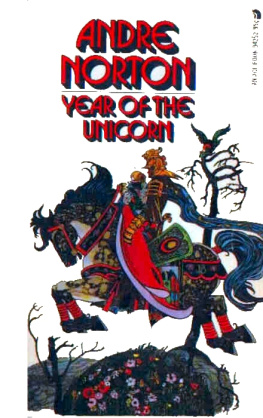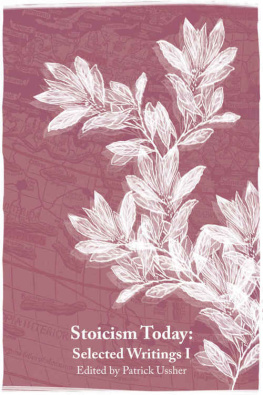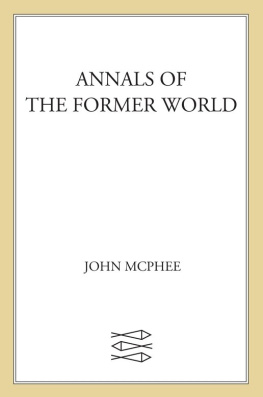Ussher - The Annals of the World
Here you can read online Ussher - The Annals of the World full text of the book (entire story) in english for free. Download pdf and epub, get meaning, cover and reviews about this ebook. year: 2006, publisher: Master Books, genre: Religion. Description of the work, (preface) as well as reviews are available. Best literature library LitArk.com created for fans of good reading and offers a wide selection of genres:
Romance novel
Science fiction
Adventure
Detective
Science
History
Home and family
Prose
Art
Politics
Computer
Non-fiction
Religion
Business
Children
Humor
Choose a favorite category and find really read worthwhile books. Enjoy immersion in the world of imagination, feel the emotions of the characters or learn something new for yourself, make an fascinating discovery.
The Annals of the World: summary, description and annotation
We offer to read an annotation, description, summary or preface (depends on what the author of the book "The Annals of the World" wrote himself). If you haven't found the necessary information about the book — write in the comments, we will try to find it.
The Annals of the World — read online for free the complete book (whole text) full work
Below is the text of the book, divided by pages. System saving the place of the last page read, allows you to conveniently read the book "The Annals of the World" online for free, without having to search again every time where you left off. Put a bookmark, and you can go to the page where you finished reading at any time.
Font size:
Interval:
Bookmark:
The Annals of the World

Revised and updated by
Larry and Marion Pierce
CASEBOUND
First printing: October 2003
Ninth printing: August 2010
Copyright 2003 by Larry and Marion Pierce. All rights reserved. No part of this book may be used or reproduced in any manner whatsoever without written permission of the publisher, except in the case of brief quotations in articles and reviews. For information write:
Master Books, P.O. Box 726, Green Forest, AR 72638.
ISBN-13: 978-0-89051-360-6
ISBN-10: 089051-360-0
Library of Congress Number: 2003106357
All British spellings are based upon information from the Oxford English Dictionary , second edition, 1994, on CD-ROM.
Special thanks to Monica Cook, Glen Averil, Mike Matthews, and Brigitte Stoll for their contribution in proofreading the final manuscript.
CD-ROM supplement programmed by Bruce Szwast.
Please consider requesting that a copy of this volume be purchased by your local library system.
Printed in the United States of America
For information regarding interviews, please contact
the publicity department at (870) 438-5288.

This revised work is dedicated to Robert Huschka who enthusiastically taught me ancient history, and Walter Eifert who taught me Latin for many years with a twinkle in his eye.



Contents


Editors Preface

Historian, Literary Critic, Theologian,
Among saints most scholarly.
Among scholars most saintly,
extract from Usshers epitaph (translated)
You hold in your hands the first major English revision that has been done of Rev. Archbishop Usshers Annals of the World since it was published in 1658two years after his death. In January of 1997, Answers in Genesis obtained photocopies of the 16501654 Latin copy and the 1658 English copy for us to examine. Ussher is ridiculed by sciolists . {OEDSci olist: superficial pretender to knowledge. The first i is long.} and we suggested it might be good to republish this old classic since very few people have actually seen what he wrote.
We set to work. My wife, Marion, typed in the whole English documentit was impossible to scanand I started to edit it. An early review prompted the classic comment, I cannot understand this old English! The horrible thought crossed my mind that the whole document would have to be extensively revised. That was done. We updated the English and checked and updated over ten thousand footnotes against the Loeb Classical Library. We carefully checked the text against the most ancient sources and Usshers Latin copy to verify the accuracy of what was being said. My wife read it aloud three times while we both amended the English. Over four years later, we finished the task and turned the work over to the publisher for the final proof-reading.
The format used for the footnoting is explained in the bibliography at the end of this work. In most history books, it is very difficult to tell where the material came from. Separating the editorials from the facts would challenge even Solomon. This is not true of Usshers work. It contains more than twelve thousand footnotes from secular sources and over two thousand quotes from the Bible or the Apocrypha. There is very little editorialising and most editorial comments come from the original writers themselves. We were able to verify about 85 percent of the footnotes pertaining to secular history. The documents for the remaining footnotes are so rare, we did not pursue them.
Julian dates are used throughout the document. Julian dates are not necessarily the same as dates on the Gregorian calendar that we use today. The Julian calendar does not drop three days every four hundred years, so the seasons drift. This explains why Ussher has the autumnal equinox for 4004 BC on October 23, not September 21. Using the Julian calendar, October 23 was the correct date. However, on the Gregorian calendar the date was September 21, as we would normally expect. As we get closer to January 1, 45 BC when Julius Caesar reformed the calendar, the Julian and Gregorian dates converge. Astronomers use Julian dates today for dating astronomical events. They cite the actual number of the day from the start of the Julian Period (JP) in 4713 BC. The start of the millennium, January 1, 2001, would be day 2452142 or January 1, 6714 JP. Historians date all pre-Christian events using the Julian scale extended backward theoretically, as if it had been in use throughout.
We have added paragraph numbers to make it easier to cite references from this work. The original index was done by year and we changed it to use paragraph numbers instead. Some years, like 44 BC, are quite voluminous and we are sure you would rather have the paragraph number.
We have included the page numbers from the original 1654 Latin document. The start of page 34 in the Latin edition would be indicated as [L34] . Page numbers for the second Latin volume are prefixed with a K. Likewise, the start of page 29 in the original 1658 English edition would be indicated as [E29] . Many of the older writers referred to the page numbers of Usshers work and we thought it best to include them. We placed these markers as discretely as possible at the end of a sentence or a paragraph. They should be accurate to within one or two sentences of the actual page break.
Some may question the importance of including what we might deem as fables today in the early historical portions of the document. This is to document the approximate dates for the original events that spawned the legends and that these events are well within the biblical time frame. There is likely a kernel of truth in them just as there are in the aborigines dream-time stories. Ussher dispassionately reports what others have writtenusually without editorial comment. This is a totally different approach to history than is customary today.
The Greek and Hebrew fonts in the original documents were almost impossible to read. We did the best we could but there are definitely some errors in the Greek and Hebrew texts.
The following summarises the major changes made to the original work.
1)The language was updated to conform to modern usage.
2)Paragraph numbers were added to the main body of the document.
3)A bibliography of most of the authors Ussher referred to was compiled. Where possible, references were made to the Loeb Classical Library.
4)The Loeb Classical Library was used to update over ten thousand footnotes. The text of the original was compared with the Loeb text for accuracy. The modern critical text of the ancient writers was used to amend the original document.
5)Occasionally, editorial notes are inserted in the document. These usually denote textual problems between the current Loeb text and the text Ussher used. Such notes are usually in round brackets and are denoted Editor. Wherever you find the pronouns I or we in the document, it is Usshers direct comments to the reader. He does this over four hundred times in this book.
Next pageFont size:
Interval:
Bookmark:
Similar books «The Annals of the World»
Look at similar books to The Annals of the World. We have selected literature similar in name and meaning in the hope of providing readers with more options to find new, interesting, not yet read works.
Discussion, reviews of the book The Annals of the World and just readers' own opinions. Leave your comments, write what you think about the work, its meaning or the main characters. Specify what exactly you liked and what you didn't like, and why you think so.

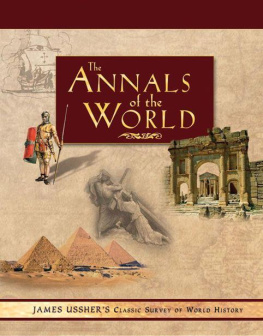
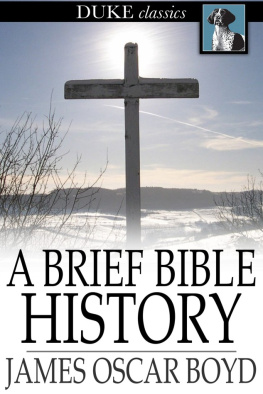

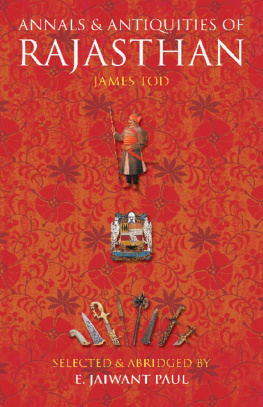
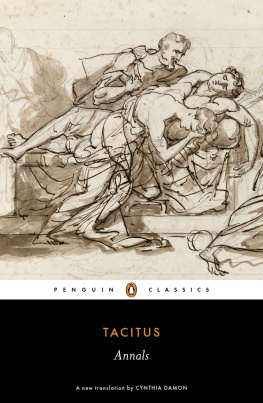
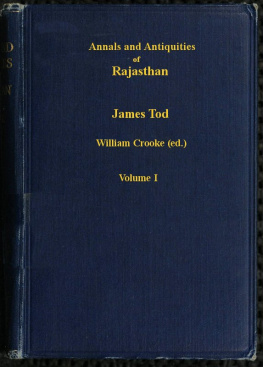
![Mangilli-climpson - Larkhills wartime locators : the history of twelve artillery survey regiments (RA and IA) in the Second World War ; [Royal Artillery Survey in the Second World War]](/uploads/posts/book/100221/thumbs/mangilli-climpson-larkhill-s-wartime-locators.jpg)
